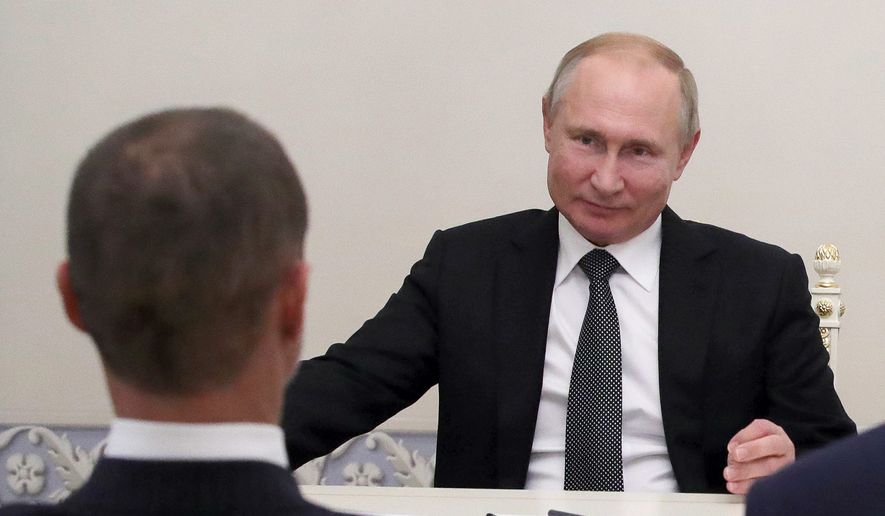Russian President Vladimir Putin has opened the door to immediately extending the last nuclear arms treaty between the U.S. and Russia that is still active.
The U.S. and Moscow are the major signatories to the New Strategic Arms Reduction treaty, widely known as New START, which limits the number of deployable American and Russian nuclear weapons at no more than 1,550.
“Russia is ready to extend the New START treaty immediately, before the year’s end and without any preconditions,” Mr. Putin said last week at a meeting with military officials.
He claimed that Moscow has made an offer to Washington to extend the agreement on several occasions but has yet to hear back. “Our proposals have been on the table,” Mr. Putin added, “but we have got no response from our partners.”
The Obama-era treaty can be mutually extended at any time, and is set to expire in February 2021.
The Trump administration launched a review into whether to extend the treaty amid concerns about Russian treaty violations and China’s growing nuclear arsenal.
Critics of an extension have warned of Russia’s repeated violations of previous nuclear arms agreements, while a significant revamp of the deal would require a politically problematic ratification battle in the Senate.
The White House already pulled the U.S. out of the Intermediate-Range Nuclear Forces (INF) Treaty with Russia dealing with shorter-range “tactical” nuclear weapons, over what the U.S. says is Moscow’s continued non-compliance with the terms of the Cold War-era pact.
Russia’s military is developing several strategic weapons that — while not directly violating New START — appear to be a circumvention of the treaty. They include new long-range missiles, hypersonic missiles that travel at ultra-high speeds, a nuclear-powered cruise missile and an underwater drone armed with a megaton-class warhead.
Under the treaty, Russia is obligated to discuss new strategic arms in bilateral meetings and has not done so.
Mr. Putin’s comments came just hours before a top Pentagon official warned that if the U.S. were to agree to an extension, it could weaken America’s hold on negotiating a broader treaty that includes China.
“If the United States were to agree to extend the treaty now, I think it would make it less likely that we would have the ability to persuade Russia and China to enter negotiations on a broader agreement,” Undersecretary of Defense for Policy John Rood said at a Senate Armed Services Committee Hearing.
“China has not participated in these similar arms control agreements, as you know, in the past. We do retain time until February 2021. To state the obvious, today it’s 2019. And so there wouldn’t need to be a lot of negotiation required if there was a decision by the United States and Russia to extend the treaty just merely agreeing on the time period.”
Like Russia, China also is aggressively building up its nuclear forces with new long-range multiple-warhead missiles, new missile submarines and new strategic bombers.
China in the past has refused appeals to engage in arms talks over concerns that doing so would require disclosures about its nuclear arms, which Chinese officials have said would undermine their deterrent value.
Despite China’s opposition to joining the treaty, President Trump said last week at the North Atlantic Treaty Organization summit in London that he has spoken with Mr. Putin about a new agreement that “will probably then include China at some point.”
“[Putin] very much wants to, and so do we, work out a treaty of some kind on nuclear weapons,” he said.
The possibility of an extension has also prompted some opposition on Capitol Hill, but in a recent House Foreign Affairs Committee hearing, the leading Republican, Rep. Michael T. McCaul, made a renewed push for an updated agreement with both Moscow and Beijing.
“We need to ensure that New START is extended in a responsible manner and that a strategic dialogue begins as soon as possible to negotiate a new arms control agreement with Russia and possibly China that addresses these outstanding issues,” the Texas Republican said.
“New START is not perfect,” he continued, “[but] we must be realistic about the future.”
• Lauren Toms can be reached at lmeier@washingtontimes.com.




Please read our comment policy before commenting.